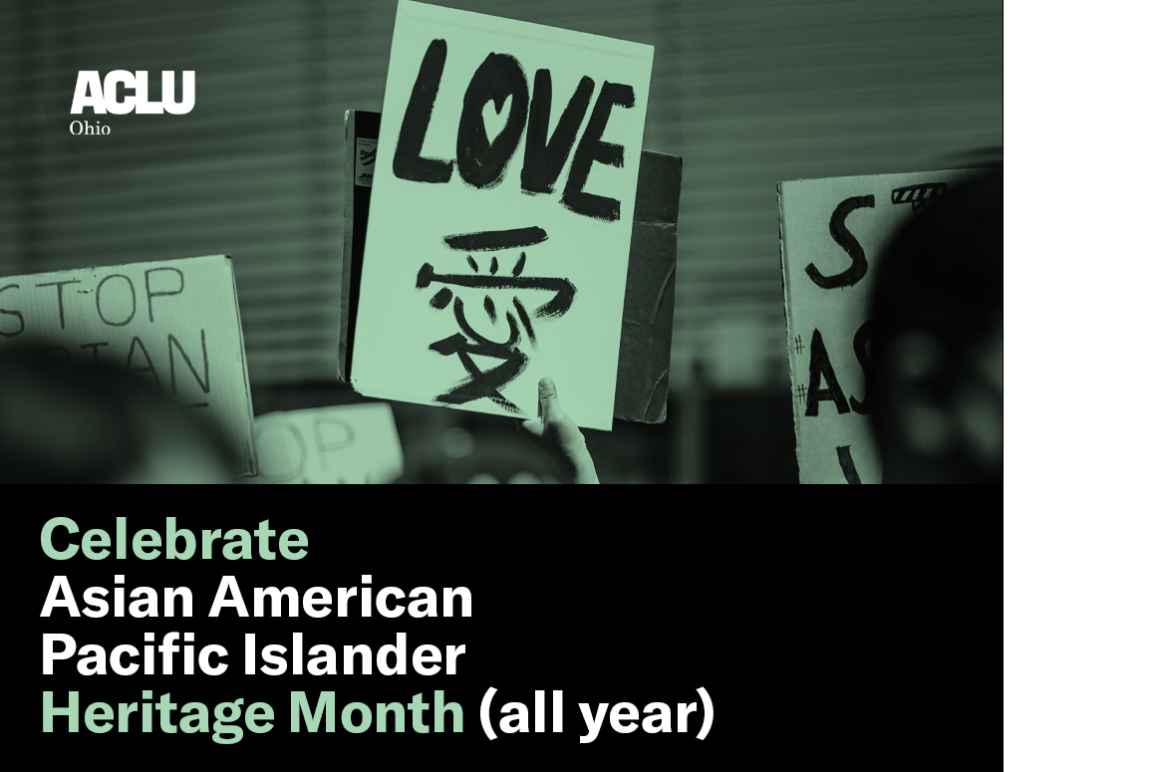Despite the rising recognition of AAPI Heritage Month, both online and in-person over the last several years, it has been around for quite a bit of time! On October 5, 1978, President Jimmy Carter signed Public Law 95-419 into law, and it called on President Carter to proclaim May 4, 1979 to May 10, 1979 as Asian/Pacific American Heritage Week. In the following decades, those in the US saw subsequent presidents make similar annual proclamations for Asian/Pacific Heritage Week until 1990, when Congress members passed Public Law 101-283 and expanded the week to last the entire month of May. Finally, in 1992, Public Law 102-450 was passed, and the annual designation of May as Asian/Pacific American Heritage Month was secured forever. Today, this is now often referred to as AAPI (Asian American Pacific Islander) Month.
Since March of 2020 it has been widely known and reported that members of the AAPI community have not only had to deal with all things global pandemic like everyone else, but they’ve have also had to face growing hatred and discrimination as anti-Asian sentiments took hold in response to the pandemic. Despite anti-Asian sentiment being long engrained within the systems, institutions, and history of the United States,, this was and is unique, because those who appear East Asian are being violently targeted and wrongfully blamed for COVID-19. This had led to growing tensions between communities and pleas for people to realize that doing anti-racist must include combatting anti-Asian racism as well.
Racism against all AAPI communities is not new. Japanese individuals and families were forced into internment camps during WWII, South Asians (like my family and I) have continuously been targeted and attacked due to Islamophobic rhetoric and policies, and the ‘model minority’ myth and concept of yellow peril have been engrained in the very fabric of American society. And unfortunately, despite May being the month of celebration of AAPI communities, hate incidents against Asians in America only increased. This only proves that we must go beyond AAPI Heritage Month, and here’s some recommendations how you can celebrate – and support – AAPI communities year round, especially here in Ohio.
- Donate to organizations that serve AAPI communities here in Ohio and across the nation.
There are many AAPI organizations that serve various AAPI communities’ needs across the nation – and even here in Ohio! In Ohio, there are two particular organizations doing important work: Ohio Progressive Asian Women’s Leadership (OPAWL) – Building AAPI Leadership and the Ohio Asian American Pacific Islander Advisory Council – however, they aren’t the only ones that are Ohio-specific that you can donate to. Additionally, here are AAPI-led organizations doing work across the nation that you can donate to today!
- Support your local AAPI businesses.
Spoiler alert: us AAPI folks have businesses all over the place – and likely in your very own neighborhood and city. So many of us own restaurants, convenience, clothing, and book stores; and so many more different businesses – both online and offline. Once in a while, you can hit up your local Indian or Japanese restaurant instead of a fast food chain and a local AAPI business instead of Amazon. Just that small action on your part could make a huge difference for these businesses.
- Have AAPI friends? Check in on them.
This is pretty self-explanatory. Many AAPI communities are facing unique experiences, especially when it comes from navigating our life experiences under realities that are impacted by white supremacy and the reckoning for racial justice. Sometimes we just need someone to check in, and it’s pretty easy to do!
- Purchase and read a book by an AAPI author from Ohio:
There is no doubt in my mind that when asked about famous writers from Ohio, one is likely to answer: Toni Morrison, Sherwood Anderson, and Louis Bromfield. But did you know there are many well-known AAPI writers as well? Bangladeshi-American Dilruba Ahmed, Vivien Chen, Atul Gawande, and so many others hail from the Buckeye State.
- Uplift AAPI stories, story-tellers, and other prominent influencers.
This one is as simple as following a Twitter or Instagram profile and sharing posts on your instastory or retweeting a Twitter thread. So often, AAPI influencers and storytellers are silenced or forgotten in the midst of so many different events, situations, and other breaking news – and usually because the support is not there for us. So, share that blog or instapost or retweet that thread. What takes merely seconds could open an avenue of many more people hearing our stories and seeing our faces!
- Sign our Anti-Asian Discrimination Action Alert.
Since April of 2020, we’ve called on Ohio lawmakers to strongly and publicly denounce anti-Asian discrimination. You can send a message now to Governor DeWine and your state senator and representation here.
And there you have it, folks! What we hope that you’ve noticed as you’ve perused this list is that one thing is glaringly obvious: none of these actions take too much effort nor too much of your time. However, these small actions make a huge difference – and not just for the AAPI communities but also for any minority group here in Ohio and the US. When communities such as mine are uplifted and supported, we’re also included, which is something every minority community strives for, along with equity.
Editor's Note: Two OPAWL-supported amendments that would directly go to our community were not included in the Senate budget bill, but there is still time to advocate for an amendment that would bring us closer to OPAWL and partners' goals. We are calling on our community and allies to support a budget amendment that would create and fund the Ohio AAPI Commission and the Office of AAPI Affairs. Asians and AAPIs are the only ethnic group in Ohio without a state level entity that would allow for coordination of resources and provide a centralized point of contact. AAPI community leaders have been advocating for this commission for over 10 years. We should not be made to wait any longer. More Information can be found here.









